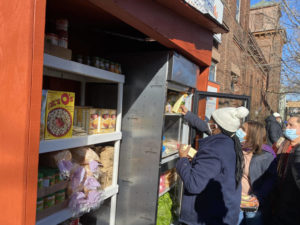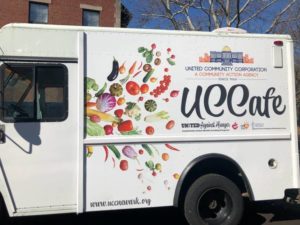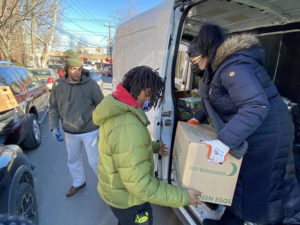
NEWARK, NJ — Accessing nutritional food options in Newark has posed a challenge for years to the city’s most underserved residents and families dealing with poverty, an issue that was only exacerbated by the coronavirus pandemic as supermarket shelves were left mostly empty due to supply chain disruptions, individuals stockpiling items, and high unemployment rates forcing many individuals to turn to food banks for assistance.
One local outreach organization, United Community Corporation (UCC), wants to ensure that by making food more sustainable and accessible in each ward, no Newarker goes hungry.
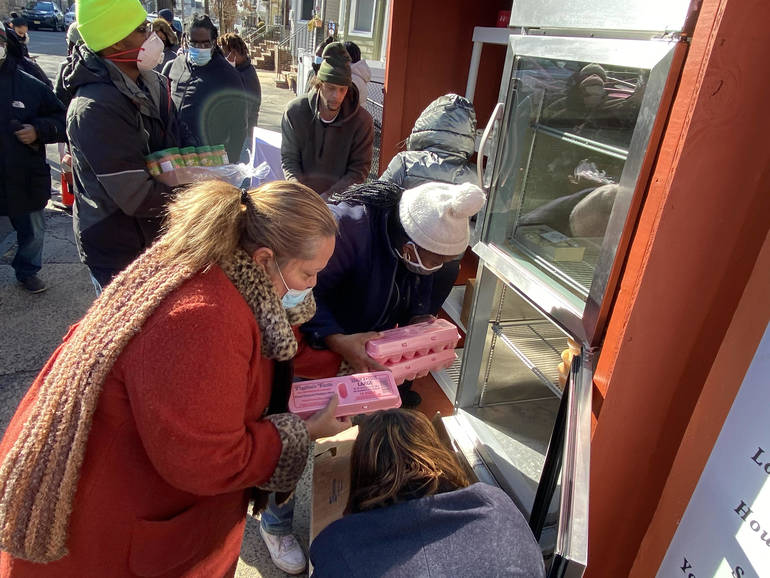
United Community Corporation is ensuring that by making food more sustainable and accessible through various initiatives such as community fridges and a mobile cafe, no Newarker goes hungry. Photo credit: Tom Wiedmann
“We decided to become a resource to address this issue and direct source of nutritional options for those families and individuals,” UCC Executive Director Craig Mainor told TAPinto Newark. “Our goal at UCC is to move people from dependency to self-sufficiency and promoting food sustainability is one way that we take significant steps in accomplishing that goal.”
Food insecurity is an issue that can’t be tied to any one particular area in Newark. Earlier this year, sections in each of the city’s five wards were designated as “food deserts” in New Jersey by the state Economic Development Authority. A food desert is defined as a region where people have limited access to healthy and affordable food.
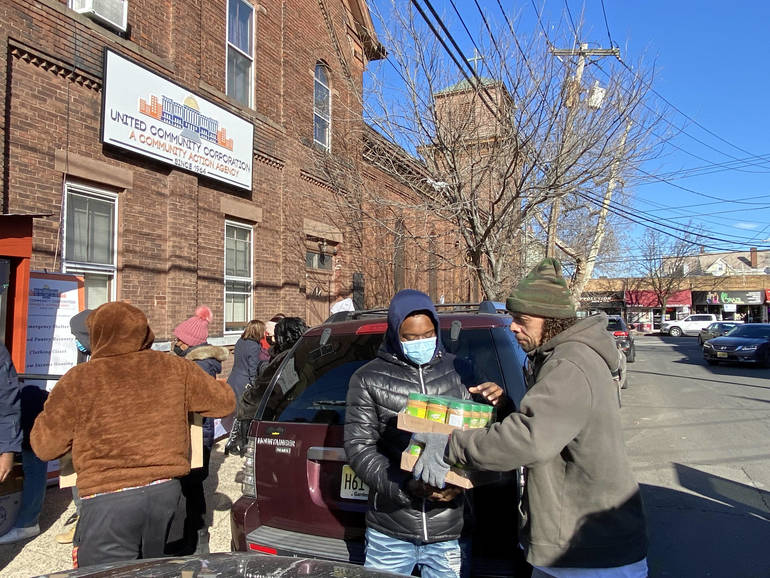
Photo credit: Tom Wiedmann
Since UCC was established in 1964, its workers have undertaken multiple initiatives to assist and feed the city’s most vulnerable residents. The nonprofit hosts routine distribution events in the city, where fresh groceries and boxed foods are typically a staple at any event alongside providing other resources such as rental and bill assistance.
However, workers at UCC understand that distributing food on a nearly monthly basis isn’t enough to stymie the issue. A sustainable food system calls for the development of more efficient food distribution systems and the creation of sustainable diets. In order to increase the options for nutrition and supplemental food packaging and availability, UCC officials had to get creative.
First, UCC amped up its food pantry services. Prior to the pandemic, Mainor said the nonprofit served about 1,200 meals per month. Post-pandemic, UCC’s service reached 20,000 individuals per month, he said.
Another way UCC tackled food insecurity head-on was by implementing community refrigerators across the city, which kicked off earlier this year by establishing a unit in the East Ward. The unit provides residents around-the-clock access to staple goods such as milk, juice, cheese, fresh fruits and vegetables, all at no cost. The initiative expanded in the coming months, with units recently installed at South 8th Street and Avon Avenue Elementary School.
“This is important in this community because it’s easier for us to drop off food at one local space,” Mainor told TAPinto Newark in January. “It provides accessibility for those to come here. It’s a major plus.”
The units have already made an impact in the community as well. Since UCC debuted its first community refrigerator in January, the units have provided more than 11,000 meals to residents, according to UCC officials.
UCC then took the mission of tackling food insecurity one step further by launching the “UCC Café Mobile Food Pantry,” an initiative that features a food truck outfitted to serve prepared and packaged meals directly to individuals.
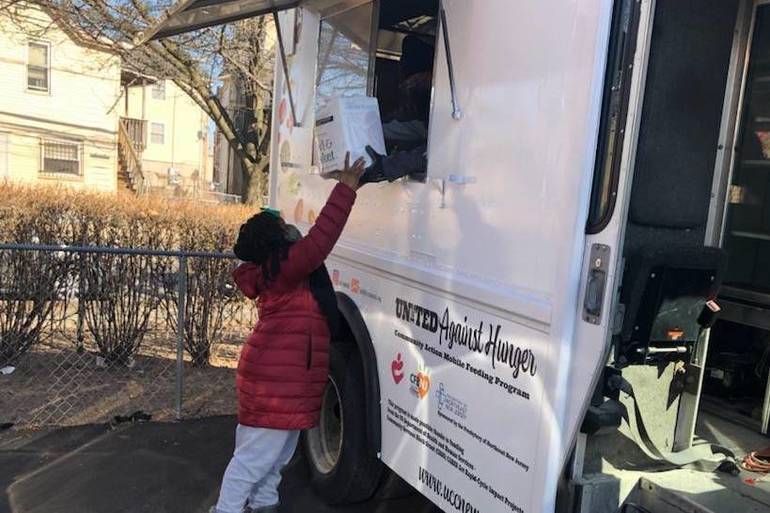
United Community Corporation is ensuring that by making food more sustainable and accessible through various initiatives such as community fridges and a mobile cafe, no Newarker goes hungry. Photo credit: Tom Wiedmann
The project, UCC officials said, can adapt to meet the needs of the community, help overcome the barriers of transportation encountered by low-income residents and eliminate the stigma of going to a food pantry or soup kitchen.
Mainor noted that about 40% of Newarkers don’t own a car, making it difficult for many residents to access meals by foot. By establishing a mobile feeding program, he said, hot meals can get delivered directly to the city’s at-risk residents. Meals are cooked and pre-packaged at a kitchen on 19th Avenue and then brought onto the truck to be delivered directly to the community.
“[It] helps address the needs of those that are not mobile,” he said. “I think that it is the innovation and thinking outside of the box that will reduce some hardship within the community.”
Alongside UCC’s own efforts to mitigate food insecurity in Newark, Mainor said he hopes other organizations will take UCC’s lead in tackling to the issue. Part of addressing the problem, he said, begins by working together with local partners.
“Partnerships are key to successfully implementing these innovative programs,” he said.
The UCC Cafe, for example, received grant support from the U.S. Department of Health and Human Services and sponsorship from the Presbytery of Northeast New Jersey and Amerigroup. The community refrigerator project received funding from various organizations, but not limited to, Partners in Health, the New Jersey Children’s Foundation, Amerigroup and the Presbytery of Northeast New Jersey, Clinton Hill Community Action, Avon Avenue School, Newark Opportunity Youth Network, and La Casa de Don Pedro.
“Both the UCC Cafe mobile feeding program and the community refrigerator project couldn’t be possible without our funders and partners, and there are quite a few of them,” Mainor said.
Knowing that food insecurity can’t be tackled alone, the UCC executive director said he’s willing to lend a hand to any organization that wants to step up.
“UCC is always looking for partners to help support our war on food insecurity,” he said. “We see the need for food in the city of Newark daily and would be happy to provide guidance to anyone looking to join the fight against food insecurity.”
